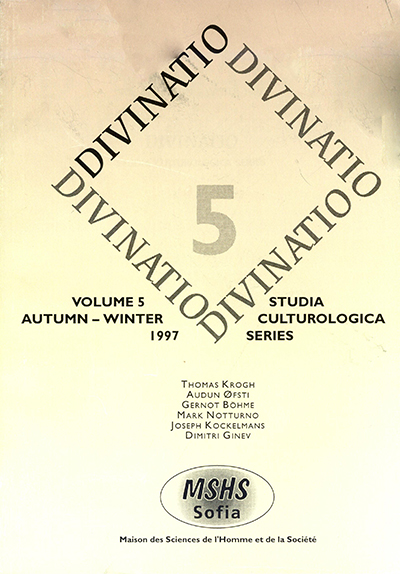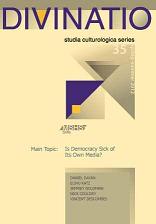
The Showing of Sharedness: Monstration, Media and Social Life
The Showing of Sharedness: Monstration, Media and Social Life
MAIN TOPIC: IS DEMOCRACY SICK OF ITS OWN MEDIA?
More...
MAIN TOPIC: IS DEMOCRACY SICK OF ITS OWN MEDIA?
More...
BOOK REVIEWS / Violence, Politics and Memory: The Communist Regime in Pirin Macedonia – the Reflections of the Contemporary and the Researcher (Nasilie, politika i pamet: Komunisticheskiyat rezhim v Pirinska Makedoniya – refleksii na savremennika i izsledovatelya). (Ed. Michail Gruev, Veselin Tepavicharov, Petya Vasileva-Grueva, Violeta Kotseva-Popova, Maria Kostadinova). Sofia: St. Kliment Ohridski University Press, 2011, 656 pp.
More...
MAIN TOPIC: IS DEMOCRACY SICK OF ITS OWN MEDIA?
More...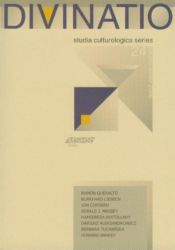
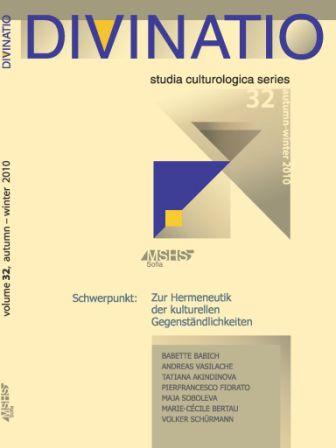

Book reviews
More...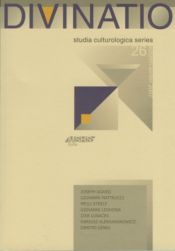

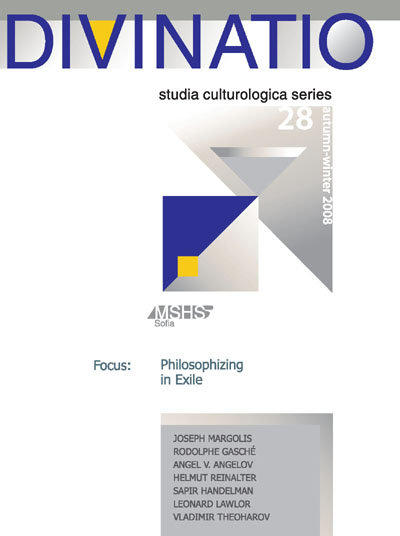
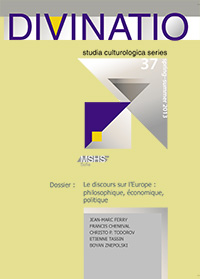
The Unwritten Doctrine of the Seminar
More...
A Long Title of Moderate Consequence
More...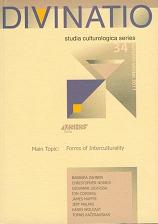
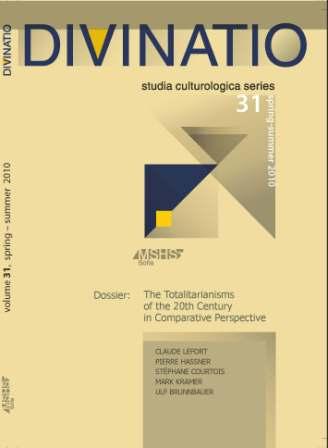
Like other ideas or political concepts, totalitarianism has a rich and complex history. It has been used to demonstrate that state institutions – i.e. the Crown, the Parliament, the law, the army – become, within a certain political context, instruments of a single party or a single leader.
More...
BOOK REVIEWS: Emil Grigorov. The Drama Of Cogito: A Modern Version. An Attempt On The Philosophy Of Merab Mamardashvili Sofi a, St. Kliment Ochridski University Publishing House 2009, 126 p.
More...
November 2009 marked the twentieth anniversary to the collapse of communism in Bulgaria and elsewhere in Central and Eastern Europe (CEE) yet public perceptions of the changes carried out since are still controversial.
More...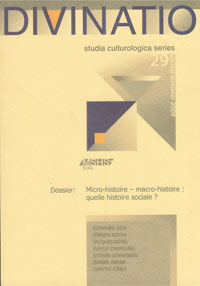
Keywords: Cicero;Rome;god;religion;divination;superstition
The article analyses Cicero’s attitude to gods, religion, divination, and superstition. Cicero follows tradition in acknowledging the existence of the gods, considering them immortal, blissful, animate, and anthropomorphic. He is ambivalent about the interaction between the gods and people. Cicero considers religion important for the Roman people because this was the popular belief — it was not his own viewpoint. Cicero thinks that people obtain divination from the gods. According to Cicero, there are two types of divination: artificial (auspices, haruspices, divination by lightning, stars, and other signs of nature) and natural (predictions in a dream, in a state of ecstasy, before death). In relation to divination, we see how multi-dimensional Cicero’s beliefs were: as a philosopher, he can accept or deny divination; as a Roman politician, he regards divination as an important instrument of the Roman religious rituals. Cicero opposes superstition to religion in his theological works, but in his secular works, he uses superstition and religion as synonyms.
More...